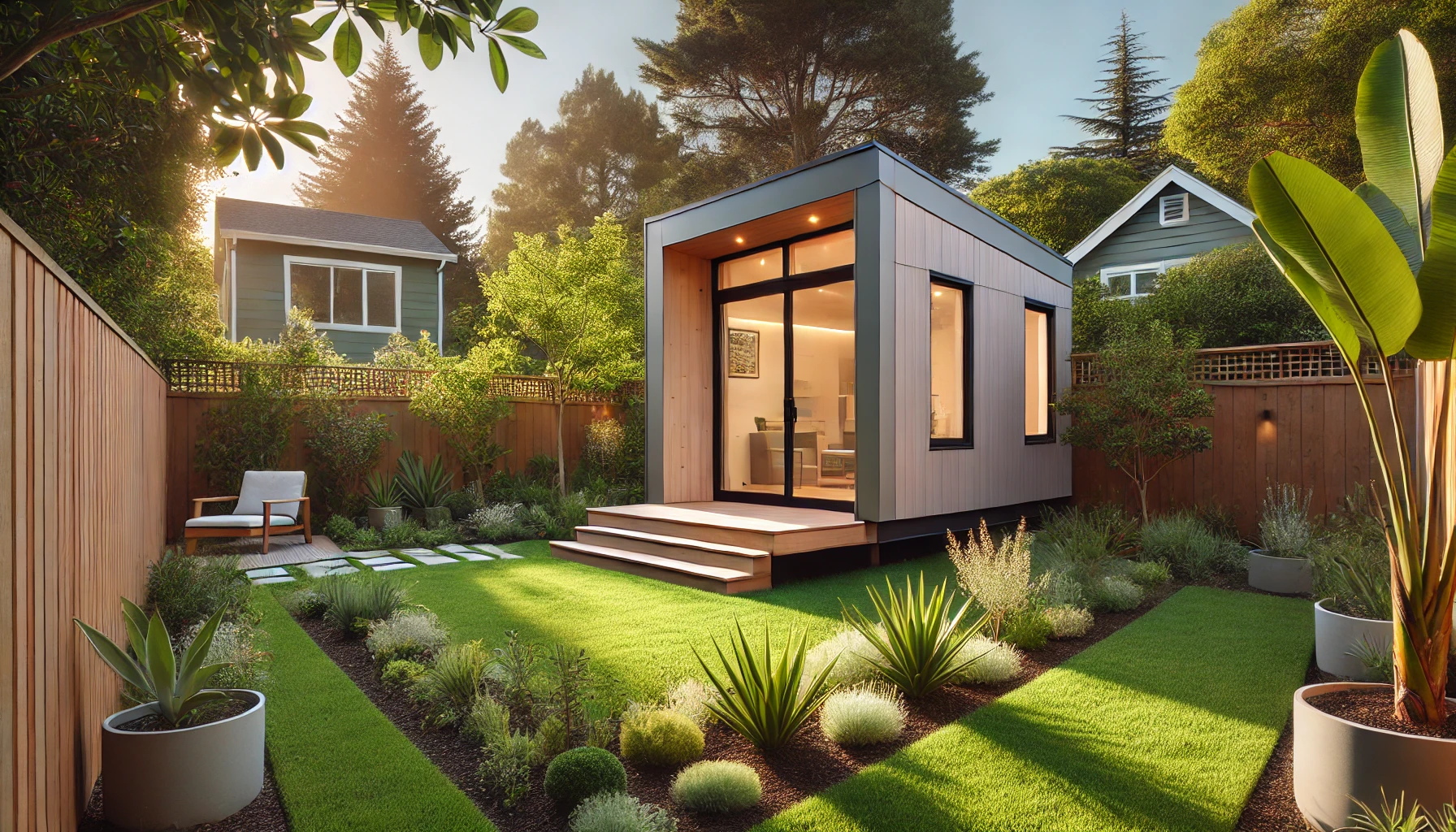Detached Accessory Dwelling Units (ADUs) are revolutionizing residential property potential, offering homeowners a versatile solution for additional living space, rental income, and property value enhancement. In this comprehensive guide, we’ll explore everything you need to know about detached ADUs, from their definition to their numerous benefits.
Defining a Detached ADU
A detached ADU is a separate, standalone residential unit located on the same lot as a primary single-family home. Unlike attached ADUs, which are connected to the main house, detached ADUs are completely independent structures. These units can take various forms, including:
- Backyard cottages
- Converted garage structures
- Purpose-built small homes
- Standalone studio units
Key Characteristics of Detached ADUs
Physical Attributes
- Completely separate from the main residence
- Independent living space with full functionality
- Typically smaller than the primary dwelling
- Can have a unique architectural design
- Includes its own entrance, kitchen, and bathroom
Size Considerations
Most jurisdictions allow detached ADUs with the following size ranges:
- Minimum: 150-200 square feet
- Maximum: 850-1,200 square feet
- Specific size limits vary by local regulations
Advantages of Detached ADUs
1. Increased Property Value
Detached ADUs can significantly boost property values by:
- Adding livable square footage
- Creating potential rental income streams
- Improving overall property functionality
2. Flexible Living Solutions
Detached ADUs offer multiple usage possibilities:
- Rental unit for additional income
- Housing for family members
- Home office or creative workspace
- Guest accommodation
- Potential retirement living space
3. Income Generation
Rental potential varies by location, but detached ADUs can generate:
- Monthly rental income between $1,500-$3,500
- Potential annual earnings of $18,000-$42,000
- Opportunity to offset mortgage costs
4. Design Flexibility
Detached ADUs provide exceptional design opportunities:
- Independent architectural styling
- Customizable to match property aesthetics
- Adaptable to various lot configurations
- Can incorporate modern or traditional design elements
Construction Considerations
Location Planning
When planning a detached ADU, consider:
- Lot size and configuration
- Setback requirements
- Utility connections
- Landscaping integration
- Potential impact on existing structures
Building Requirements
Typical detached ADU requirements include:
- Compliance with local zoning regulations
- Meeting building code standards
- Obtaining necessary permits
- Ensuring proper utility connections
- Adhering to size and height restrictions
Cost Factors
Detached ADU construction costs typically range:
- Basic units: $100,000-$250,000
- Mid-range units: $250,000-$350,000
- High-end custom units: $350,000-$500,000
Factors influencing cost include:
- Size of the unit
- Quality of materials
- Site preparation requirements
- Local labor and material costs
- Complexity of design
Financing Options
Homeowners can explore multiple financing strategies:
- Home equity loans
- Construction loans
- Cash-out refinancing
- Personal savings
- Specialized ADU financing programs
Potential Challenges
While detached ADUs offer numerous benefits, potential challenges include:
- Initial construction costs
- Permitting complexities
- Utility connection expenses
- Ongoing maintenance requirements
- Potential neighborhood restrictions
Legal and Zoning Considerations
Before constructing a detached ADU:
- Research local zoning laws
- Verify property eligibility
- Understand size and design restrictions
- Check for any homeowners association limitations
- Confirm permit requirements
Environmental Benefits
Detached ADUs contribute to sustainable living by:
- Reducing housing sprawl
- Increasing housing density
- Promoting efficient land use
- Potentially incorporating green building technologies
- Supporting multigenerational living arrangements
Conclusion: Is a Detached ADU Right for You?
Detached ADUs represent a versatile, valuable addition to residential properties. They offer financial, practical, and lifestyle benefits that extend far beyond traditional home improvements. By carefully considering your specific needs, local regulations, and property characteristics, you can determine whether a detached ADU is an ideal solution for your property.
Ready to explore the potential of a detached ADU? Consult with experienced professionals who can guide you through design, construction, and regulatory compliance, ensuring a successful project that meets your unique requirements.
At Griham Living, we specialize in transforming ADU visions into reality. Contact us today to begin your detached ADU journey.

